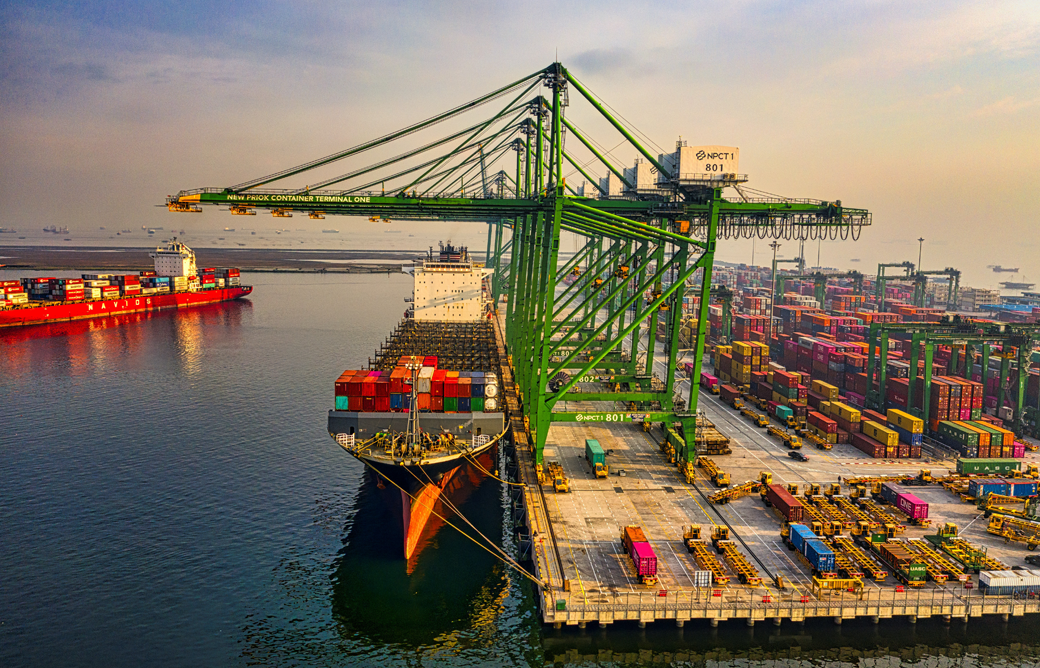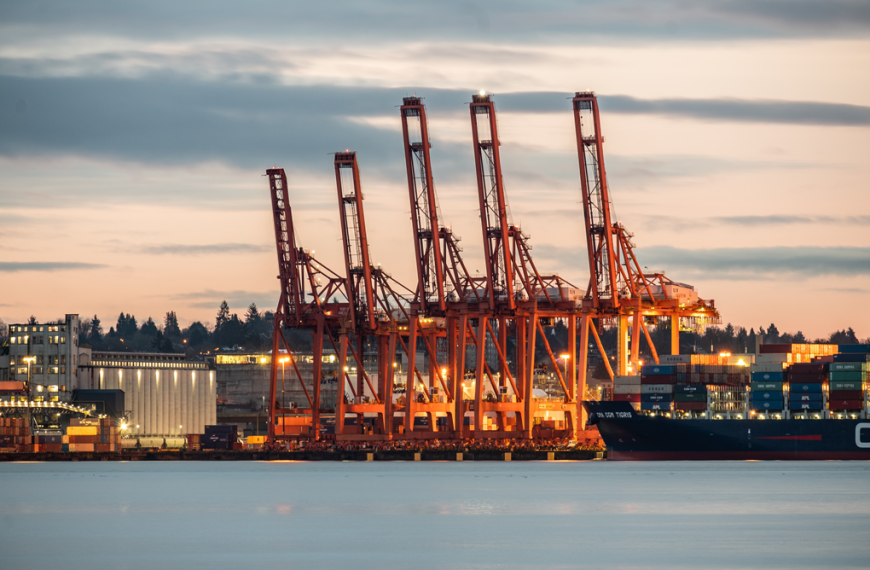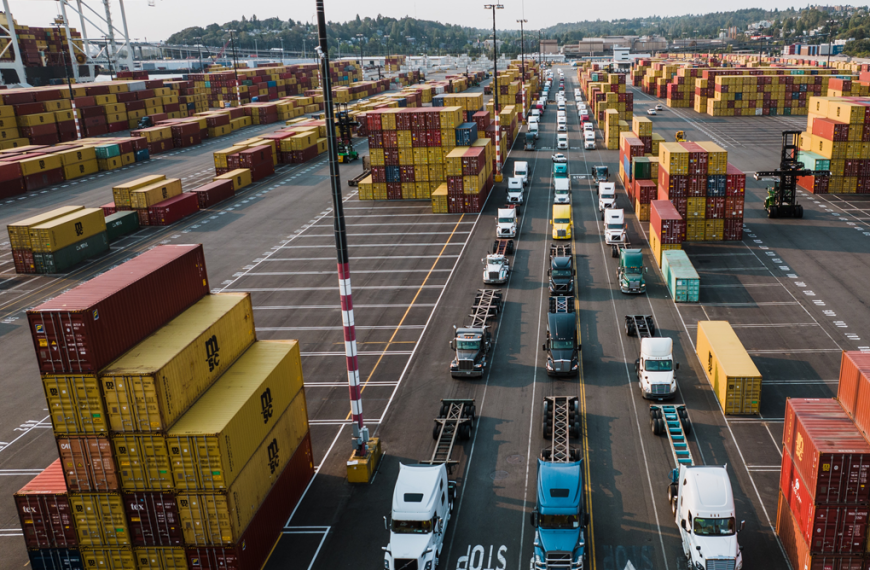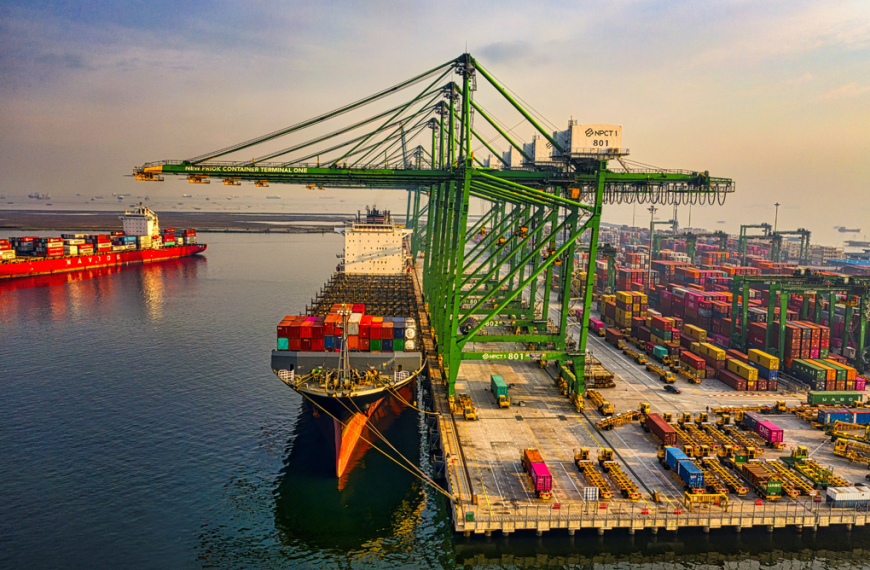The logistics of global trade are complex, and container shipping companies play a critical role in the movement of goods across the world. From freight forwarding to air and sea freight, these companies provide essential services that keep the wheels of commerce turning.
In this blog post, we’ll take a deep dive into the container shipping market, including market analysis, trends, and rankings of the top companies in the industry.
- Market Overview
- Market Trends
- Market Leaders
- Company Rankings 2022 Report Overview
- The Changing Face of Container Shipping
- Frequently Asked Questions
- What is the market trend for shipping containers?
- What is the market size of the container industry?
- Who is the largest container shipping company?
- What is market containers?
- What is a TEU in shipping?
- How many TEU are in a 40 container?
- What does 1 TEU equal to?
- What is 1 TEU container?
- How much is 1 TEU in kg?
- TEU vs FEU
Market Overview
The container shipping industry has experienced significant growth in recent years, driven by increasing globalization and the rise of e-commerce. According to a report by Market Research Future, the global container shipping market is expected to grow at a CAGR of 3.5% between 2020 and 2027.
In terms of volume, Asia-Pacific dominates the container shipping market, accounting for nearly two-thirds of all container traffic. However, North America and Europe remain significant players in the industry, with the United States and Germany ranking among the top ten container ports in the world.
Market Trends
Several key trends are driving the container shipping industry forward. One of the most significant is the growing demand for eco-friendly shipping solutions. As consumers become more environmentally conscious, they’re demanding that companies reduce their carbon footprint. In response, container shipping companies are investing in new technologies to reduce emissions and increase fuel efficiency.
Another trend is the rise of digitalization. From blockchain to artificial intelligence, technology is transforming the way container shipping companies operate. Digitalization is enabling companies to optimize their operations, reduce costs, and improve the customer experience.
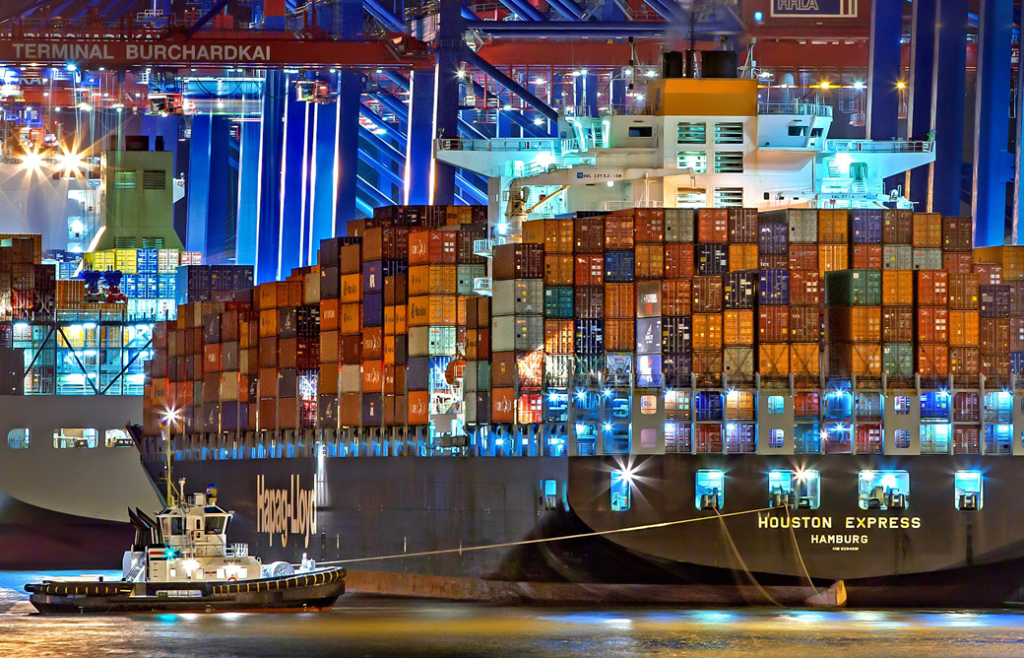
Market Leaders
The container shipping industry is dominated by a handful of major players. According to a report by Alphaliner, the top five container shipping companies by market share in 2021 were:
- Maersk
- MSC
- CMA CGM
- COSCO Shipping
- Hapag-Lloyd
| Company Name | Market Share | Brief Description |
|---|---|---|
| Maersk | 17.8% | Maersk is the world’s largest container shipping company, with a fleet of over 700 vessels. The company operates in over 120 countries and has a strong focus on sustainability. |
| MSC | 13.9% | MSC is a privately owned Swiss company and the second-largest container shipping company in the world. The company has a global network of over 500 offices and operates a fleet of over 570 vessels. |
| CMA CGM | 12.2% | CMA CGM is a French container shipping company that operates a fleet of over 500 vessels. The company has a strong focus on innovation and has developed several eco-friendly shipping solutions. |
| COSCO Shipping | 11.3% | COSCO Shipping is a Chinese state-owned company that operates a fleet of over 400 vessels. The company has a strong presence in Asia-Pacific and is expanding its global footprint. |
| Hapag-Lloyd | 7.3% | Hapag-Lloyd is a German container shipping company that operates a fleet of over 230 vessels. The company has a strong focus on digitalization and has developed several digital tools to improve efficiency. |
Note: The market share data is based on a report by Alphaliner as of January 2022. The brief descriptions are intended to provide a general overview of each company and their focus areas.
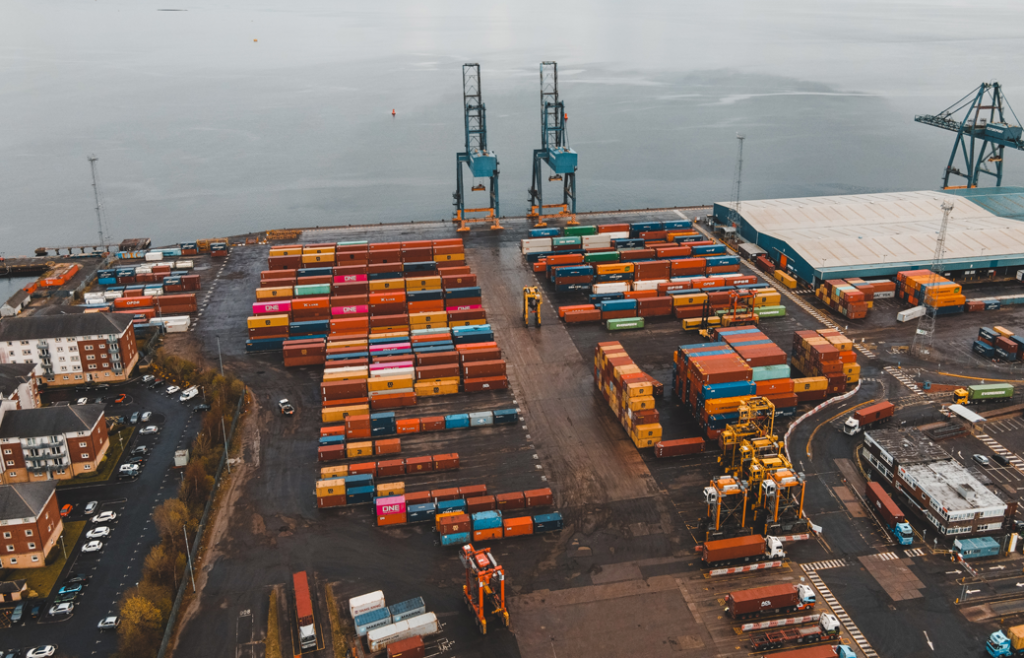
These companies account for over half of the world’s container shipping capacity, highlighting their dominance in the market.
Company Rankings 2022 Report Overview
Each year, several organizations publish rankings of the top container shipping companies in the world. These rankings are based on factors such as market share, fleet size, and revenue.
One of the most respected rankings is the annual report published by Lloyd’s List. In their 2022 report, the top ten container shipping companies were:
- Maersk
- MSC
- CMA CGM
- COSCO Shipping
- Hapag-Lloyd
- ONE
- Evergreen
- Yang Ming
- PIL
- ZIM
| Rank | Company Name | Brief Description |
|---|---|---|
| 1 | Maersk | Maersk is the largest container shipping company in the world, with a strong focus on sustainability and digitalization. The company operates in over 120 countries and has a fleet of over 700 vessels. |
| 2 | MSC | MSC is a privately owned Swiss company and the second-largest container shipping company in the world. The company has a global network of over 500 offices and operates a fleet of over 570 vessels. |
| 3 | CMA CGM | CMA CGM is a French container shipping company that operates a fleet of over 500 vessels. The company has a strong focus on innovation and sustainability. |
| 4 | COSCO Shipping | COSCO Shipping is a Chinese state-owned company that operates a fleet of over 400 vessels. The company has a strong presence in Asia-Pacific and is expanding globally. |
| 5 | Hapag-Lloyd | Hapag-Lloyd is a German container shipping company that operates a fleet of over 230 vessels. The company has a strong focus on digitalization and sustainability. |
| 6 | ONE | ONE is a Japanese container shipping company that was formed by the merger of three Japanese shipping companies. The company operates a fleet of over 200 vessels and has a global network of over 120 offices. |
| 7 | Evergreen | Evergreen is a Taiwanese container shipping company that operates a fleet of over 200 vessels. The company has a strong presence in Asia-Pacific and is expanding globally. |
| 8 | PIL | PIL is a Singaporean container shipping company that operates a fleet of over 150 vessels. The company has a strong presence in Southeast Asia and is expanding globally. |
| 9 | Yang Ming | Yang Ming is a Taiwanese container shipping company that operates a fleet of over 100 vessels. The company has a strong focus on digitalization and sustainability. |
| 10 | ZIM | ZIM is an Israeli container shipping company that operates a fleet of over 80 vessels. The company has a strong focus on innovation and digitalization. |
Note: The rankings and brief descriptions are based on a report by Alphaliner as of January 2022. The descriptions are intended to provide a general overview of each company and their focus areas.
While the top five companies remain the same, there were some changes further down the list, with ONE and PIL entering the top ten.
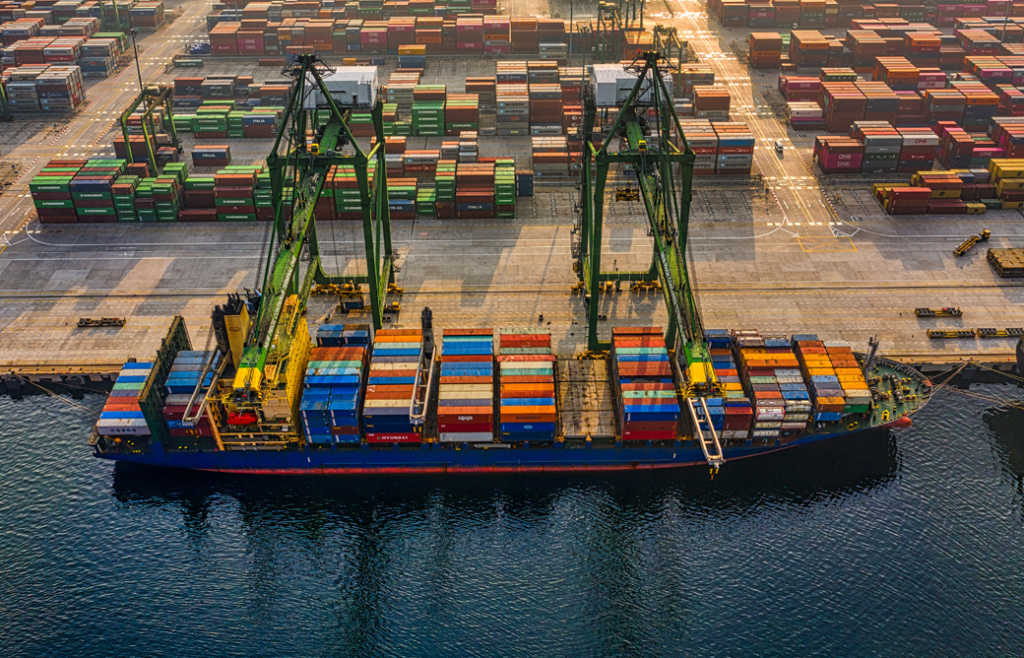
The Changing Face of Container Shipping
Container shipping is a vital component of global trade, facilitating the movement of goods across the world. Over the years, the container shipping industry has undergone significant changes, driven by advances in technology, changing customer demands, and increasing environmental awareness.
Emerging Trends in Container Shipping
Digitalization
One of the most significant changes in the container shipping industry is the adoption of digital technologies. Companies are investing in digital solutions such as blockchain, artificial intelligence, and big data to improve efficiency and reduce costs. Digitalization has also enabled better communication and collaboration among stakeholders in the supply chain, leading to improved visibility and transparency.
Sustainability
The container shipping industry is also placing greater emphasis on sustainability, driven by increasing environmental awareness and regulatory requirements. Companies are investing in cleaner fuels, such as liquefied natural gas and biofuels, to reduce emissions. They are also adopting sustainable practices such as using eco-friendly packaging and promoting circular economy principles.
Shifts in Trade Patterns
The COVID-19 pandemic has accelerated changes in global trade patterns, with a shift towards regionalization and near-shoring. This trend has led to increased demand for regional container shipping services and a shift away from the traditional hub-and-spoke model.
Related Articles
Market News and Trends
Company Logistics and Freight Forwarding
Logistics and freight forwarding companies are playing an increasingly important role in the container shipping industry. These companies provide end-to-end logistics solutions, including transportation, warehousing, and distribution. They are also investing in digital solutions to improve efficiency and enhance customer service.
Air Freight and Sea Freight
The container shipping industry encompasses both air freight and sea freight. While air freight is faster and more expensive, sea freight is more cost-effective for larger volumes and longer distances. However, air freight is gaining popularity for high-value and time-sensitive goods, while sea freight is seeing increased demand for regional and domestic shipments.
Container Ship Trends
Container ships are also undergoing significant changes, with an increasing focus on eco-friendly designs and technologies. Some of the emerging trends include the use of LNG-fueled ships, retrofitting existing vessels with scrubbers and ballast water treatment systems, and the use of smart containers equipped with sensors and tracking devices.
In conclusion, the container shipping industry is evolving rapidly, driven by technological advancements, sustainability concerns, and changing trade patterns. Companies that adapt to these changes and embrace digitalization and sustainability are likely to thrive in the changing face of container shipping.
Frequently Asked Questions
What is the market trend for shipping containers?
The market trend for shipping containers is largely driven by global trade patterns and economic factors. The COVID-19 pandemic has resulted in changes to global supply chains, with a shift towards regionalization and near-shoring. This trend has led to increased demand for regional container shipping services and a shift away from the traditional hub-and-spoke model. Additionally, digitalization and sustainability have emerged as significant trends in the container shipping industry.
What is the market size of the container industry?
According to a report by Allied Market Research, the global container shipping industry was valued at $8.70 billion in 2020 and is expected to reach $12.08 billion by 2028, growing at a CAGR of 4.0% from 2021 to 2028. The market size is influenced by factors such as the growth of global trade, the increasing use of containerization, and the adoption of digital technologies.
Who is the largest container shipping company?
The largest container shipping company in the world is Maersk, a Danish multinational conglomerate that operates in the transportation and logistics sectors. Maersk has a market share of approximately 17%, with a fleet of around 700 vessels and a capacity of over 4 million TEUs (twenty-foot equivalent units). Other major container shipping companies include Mediterranean Shipping Company (MSC), CMA CGM, Hapag-Lloyd, and COSCO Shipping.
What is market containers?
The term “market containers” may refer to the availability and pricing of shipping containers in the market. The price and availability of shipping containers can be influenced by factors such as supply and demand, the cost of raw materials, and the availability of transportation. The market for containers can also be impacted by trade tensions and geopolitical factors, which can result in changes to shipping routes and container availability.
What is a TEU in shipping?
A TEU, or twenty-foot equivalent unit, is a standard unit of measurement used in the shipping industry to describe the cargo-carrying capacity of a container ship. It is based on the dimensions of a standard 20-foot shipping container, which has a length of 20 feet (6.1 meters), a width of 8 feet (2.44 meters), and a height of 8.5 feet (2.59 meters).
How many TEU are in a 40 container?
A 40-foot shipping container is equal to two TEUs (twenty-foot equivalent units). This is because a 40-foot container is twice as long as a standard 20-foot container, but has the same height and width.
What does 1 TEU equal to?
1 TEU is equal to one twenty-foot equivalent unit, which is a standard unit of measurement used in the shipping industry to describe the cargo-carrying capacity of a container ship. It represents the volume of a standard 20-foot shipping container, which is approximately 1,172 cubic feet (33.2 cubic meters).
What is 1 TEU container?
A 1 TEU container is a standard 20-foot shipping container, which has a length of 20 feet (6.1 meters), a width of 8 feet (2.44 meters), and a height of 8.5 feet (2.59 meters). It is the smallest container size commonly used in the shipping industry, and is designed to be transported on container ships, trucks, and trains.
How much is 1 TEU in kg?
The weight of 1 TEU in kilograms can vary depending on the cargo being transported. However, as a rough estimate, the maximum weight of a fully loaded 20-foot container is around 30,480 kilograms (67,200 pounds), including the weight of the container itself.
TEU vs FEU
TEU stands for twenty-foot equivalent unit, while FEU stands for forty-foot equivalent unit. As the names suggest, TEU refers to a standard 20-foot container, while FEU refers to a standard 40-foot container. These units are used to describe the cargo-carrying capacity of container ships and the number of containers being transported. A 40-foot container is equal to two TEUs, or one FEU.

